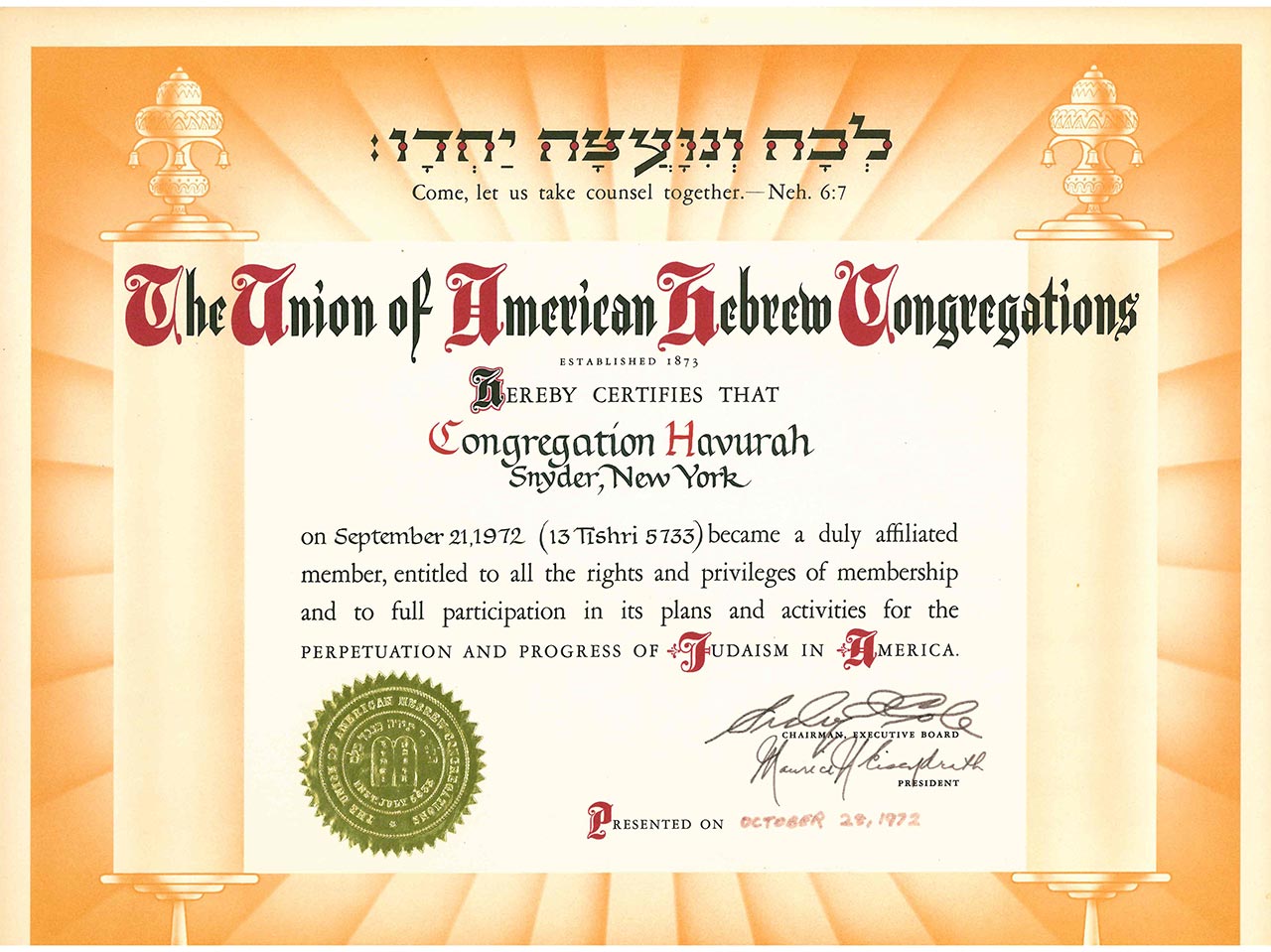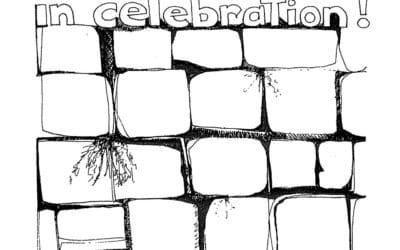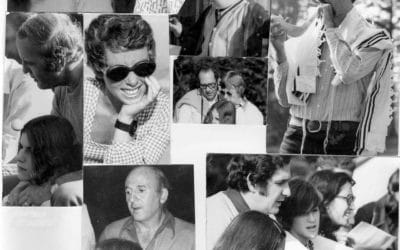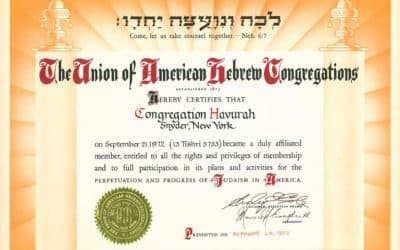Synagogues / Congregation Havurah
Congregation Havurah was founded in 1972 as a lay-led fellowship allied with Reform Judaism. It is located in Williamsville, NY, and has a high holiday annual retreat in Chautauqua, NY.
Overview
In 1972, a new style of congregation formed in Greater Buffalo: Havurah, a fellowship six couples, led by Dr. Leonard Katz and Judith H. Katz, who sought a more authentic religious experience and a Judaism that related to contemporary issues. Some of the founding couples were former Temple Beth Zion members, others were unaffiliated. The congregation established four philosophical pillars: The principle of ultimate freedom of thought with the acceptance of and respect for all religious beliefs within the group as a rightful part of Reform Judaism; an emphasis on family participation in congregational activities, an intergenerational religious climate, and the application of ethical principles to the search for solutions to problems of human injustice. The group chose the name Congregation Havurah.
Like most establishing congregations, members initially met at each other’s homes. Unlike other groups that formalized into a synagogue structure over time, Congregation Havurah continued with this format, and as the group enlarged, they decided not to build or buy a building, but to rent space. They chose the Unitarian Church at 6320 Main Street, Main Street in Williamsville where they remain. The group became an affiliate member of the (UAHC) Union of American Hebrew Congregations (now Union of Reform Judaism) within a few months of their founding. Through this relationship, they obtained the intermittent services of several students rabbis and rabbis including Bennett Miller, Louis Reiser, Karen Fox, and David Alexander, even as they remained lay run. In their first year, Congregation Havurah also established a tradition of an annual High Holiday retreats at Chautauqua that continues to this day.
Congregation Havurah Principles
- The principle of ultimate freedom of thought; the acceptance of and respect for all religious beliefs within the group as a rightful part of Reform Judaism.
- A strong emphasis on family participation in congregational activities.
- A dynamic, honest, searching religious climate in education in which spiritual meaning is sought by young and old together.
- The application of ethical principles to the search for solutions to problems of human injustices.
- The study of our relationship to Israel.
- The selection of rituals, traditions and customs which, through study, we find meaningful.
- The importance of the community experience as an integral part of our evolving spiritual life.
- A group size which will insure meaningful participation of each member and maintain a sense of intimacy and personal involvement.
Source: Tom Nusbaum, Congregation Havurah: The First Twenty-Five Years 1972-1997.
Gallery
Tom Nusbaum, Congregation Havurah: The First Twenty-Five Years 1972-1997, courtesy of Congregation Havurah, with permission of Tom Nusbaum and Terri Katz Kasimov.
Tom Nusbaum, Congregation Havurah: The First Twenty-Five Years 1972-1997
Tom Nusbaum, Congregation Havurah: The First Twenty-Five Years 1972-1997, courtesy of Congregation Havurah, with permission of Tom Nusbaum and Terri Katz Kasimov.
Havurah collage, 1970s, courtesy of Congregation Havurah.
Havurah Collage, 1970s
Congregation Havurah affiliated membership document, UAHC, September 21, 1972, Courtesy of Congregation Havurah.
UAHC September 21, 1972, Affiliated member, Havurah
Discover More
- Leonard A. Katz, “Congregation Havurah” in Toward New Models for the Future: The Synagogue (New York: UAHC, 1974).
- Leonard A. Katz, “When a Havurah Ages.” Sh’ma, May 16, 1975, p. 1-2.
- Bernard Reisman, The Chavurah: A Contemporary Jewish Experience. New York: UAHC, 1977.
- Betty and Arthur Salz, Shalom Chautauqua: the Hebrew Congregation and the Jewish presence, 2020.
Contribute to this Page
We are seeking internal and external photographs, documents, film, mementos and written recollections relating to the Congregation Havurah community for digitization. If you have materials you’d like to make available for this purpose, please contact us.





